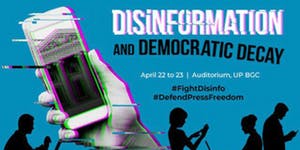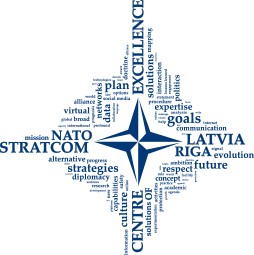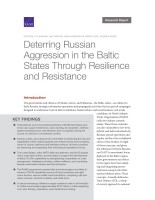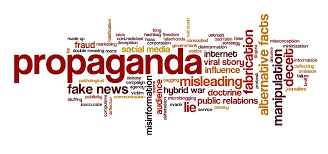 The upcoming European Parliament contests are one of the largest, most complex democratic undertakings on record, as twenty-eight EU members will choose leaders for the next half-decade, notes Erik Brattberg, director of the Europe Program and a fellow at the Carnegie Endowment for International Peace in Washington. Under the specter of election interference and polarization, Europe faces a serious test of whether its countermeasures are up to snuff, he writes:
The upcoming European Parliament contests are one of the largest, most complex democratic undertakings on record, as twenty-eight EU members will choose leaders for the next half-decade, notes Erik Brattberg, director of the Europe Program and a fellow at the Carnegie Endowment for International Peace in Washington. Under the specter of election interference and polarization, Europe faces a serious test of whether its countermeasures are up to snuff, he writes:
- How are European officials safeguarding the ballot box amid the regulatory thicket of separate rules that govern various member states’ elections?
- How will the EU coordinate its push to bolster election security with steps that individual member states are taking themselves?
- Will the voluntary pledges social media companies have made to counter disinformation be enough?

Hostile powers employ hybrid warfare to “deliberately target democratic states’ systemic vulnerabilities,” according to Hybrid Threats: A Strategic Communications Perspective, a report from the Latvia-based NATO Strategic Communications Centre of Excellence. In addition, such threats:
- Are coordinated and synchronised across a wide range of means.
- Use a wide range of means.
- Exploit the threshold of detection and attribution as well as the border between war and peace.
- Aim to influence different forms of decision-making at the local (regional), state, or institutional level.
- Favour and/or gain the agent’s strategic goals while undermining and/or hurting the target.
“Governments need to be clear about their strategic aims and ensure that statements and actions are consistent with core values,” the report adds. “Democracies should also be aware
that appearing to deal harshly with a suspicious actor – such as with civil society or media organisations – might provide the justification for autocratic governments to crack down on disagreeable foreign-sponsored NGOs or media outlets in their own country.”
 NATO’s eastern flank is vulnerable to Russian intimidation and hybrid warfare. A new RAND report finds that unconventional defense plans could help deter and counteract this threat.
NATO’s eastern flank is vulnerable to Russian intimidation and hybrid warfare. A new RAND report finds that unconventional defense plans could help deter and counteract this threat.
WhatsApp is a dark version of democracy: India’s election shows the risks of social media platforms becoming private messaging groups, says the FT’s John Gapper.
How can democracies prevent, withstand, and counter constantly evolving attacks? CSIS asks:
 The Defending Democratic Institutions (DDI) project, in collaboration with the American Bar Association’s Standing Committee on Law and National Security, invites you to join this Law Day for the launch of our newest report Beyond the Ballot: How the Kremlin Works to Undermine the U.S. Justice System. This report explores the ways in which Russia has used disinformation to weaken democracies, and will shine a light on how these attacks, and potentially attacks by others, uniquely threaten public trust in institutions of justice in the United States.
The Defending Democratic Institutions (DDI) project, in collaboration with the American Bar Association’s Standing Committee on Law and National Security, invites you to join this Law Day for the launch of our newest report Beyond the Ballot: How the Kremlin Works to Undermine the U.S. Justice System. This report explores the ways in which Russia has used disinformation to weaken democracies, and will shine a light on how these attacks, and potentially attacks by others, uniquely threaten public trust in institutions of justice in the United States.
 Following an introductory report presentation by DDI Director, Suzanne Spaulding, an expert panel will discuss the current threat landscape confronting democracies, including cyber and cyber-enabled disinformation operations that aim to undermine democratic institutions. A second panel will then discuss the implications of these threats, and will advance whole-of-nation recommendations for growing societal and system resilience against these threats. The program will conclude with a keynote address delivered by former Department of Homeland Security Secretary, Michael Chertoff.
Following an introductory report presentation by DDI Director, Suzanne Spaulding, an expert panel will discuss the current threat landscape confronting democracies, including cyber and cyber-enabled disinformation operations that aim to undermine democratic institutions. A second panel will then discuss the implications of these threats, and will advance whole-of-nation recommendations for growing societal and system resilience against these threats. The program will conclude with a keynote address delivered by former Department of Homeland Security Secretary, Michael Chertoff.
Wednesday, May 1, 2019 3:00 pm – 6:00 pm. CSIS Headquarters, 2nd Floor
- FEATURING
-







